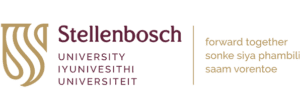-
SADiLaR funding helps launch the ǂKhomani | Hugh Brody Archive
A research project, funded by the South African Centre for Digital Language Resources (SADiLaR), has helped realise the long-held dream of South Africa’s ǂKhomani community to share their proud history with the rest of the world. Dr Kerry Jones, director of African Tongue and research lead on the project, has worked tirelessly with her research…
-
SADiLaR workshop highlights benefits of online dictionaries
The South African Centre for Digital Language Resources (SADiLaR) recently facilitated a successful online-dictionary training workshop at the University of KwaZulu-Natal (UKZN). Hosted by UKZN’s University Language Planning and Development Office (ULPDO) on 7 December 2023, the one-day workshop invited staff, students, and language practitioners to delve into the world of online dictionaries and discover…
-
South Africa joins CLARIN ERIC as member
After a fruitful five years as an observer of CLARIN ERIC, South Africa has become an official member of the distributed digital infrastructure as of 1 January 2024. South Africa is the first member country outside of Europe, and SADiLaR is the proud representative body for SA. Currently, CLARIN ERIC has 24 members and two…
-
Digital footprint crucial for indigenous language preservation
“The work that is being done by SWiP is highly commendable. The key message of today’s meeting for me is the importance of preserving our languages. As a Zulu speaker, it is crucial that isiZulu does not die.” These are the words of Tholakele Nkwanyana, a lecturer in Education and Language Development at North-West University…
-
Gender Terminology
In opposition to the planned changes to the Urban Areas Act, 20,000 women organized a march to the Union Buildings in Pretoria on August 9, 1956. The success of this march demonstrated the strength that women have when they unite. This march demonstrated that women should not be restricted to the home, the kitchen, or…
-
SADiLaR kicks off its language resources audit to support multilingualism in SA higher education
Author – Natalie Simon “Language continues to be a barrier to access and success for many students at South African higher education institutions,” notes the the Department of Higher Education and Training (DHET) in their revised Language Policy Framework for Higher Education. This policy framework emphasises the importance of developing multilingual environments at South Africa’s public…







